Editor's note: As teams officially qualify for the round of 16, we've added them to the file. Friday's revision now includes the teams that advanced from Groups G (Brazil, Switzerland) and Group H (Portugal, South Korea), as well as updated odds of winning it all.
A typical World Cup can feel like a marathon, but this one feels like a sprint. After a nonstop, 13-day group stage ends on Friday, there are no days off before the round of 16 begins with Netherlands vs. USA and Australia vs. Argentina on Saturday.
- World Cup 2022: News and features | Schedule
Therefore, we shouldn't wait to preview the knockout rounds. While the dance card continues to fill in, let's talk about each qualifying team's biggest strengths and weaknesses: basically, the reasons they advanced, the reasons they could make a run and the fatal flaws that will probably trip them up at some point.
Let's go!
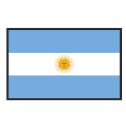 Argentina (first place, Group C)
Argentina (first place, Group C)
Title odds, per FiveThirtyEight: 13%
Round of 16 opponent: Australia (Saturday, 2 p.m. ET)
Why they will win it all: They've recovered from losing to Saudi Arabia. As incredible as the Saudis' 2-1 win was last Tuesday, it was a clear and obvious "sports are dumb sometimes" outcome. Argentina attempted 15 shots worth 2.3 xG, and Saudi Arabia attempted three worth 0.2, but the latter trumped the former, and the Saudis -- to their credit -- defended wonderfully down the stretch.
- Marcotti: The seven tendencies of Messi vs. Poland
That match almost ruined two matches; manager Lionel Scaloni made a ton of lineup changes for what turned out to be a dire and unimpressive performance against Mexico. Somehow a lineup with Lionel Messi, Lautaro Martinez and Angel Di Maria attempted only five shots worth 0.3 xG, but Messi's wonderful long-range goal in the 64th minute allowed them to relax. They saw off Mexico, then dominated Poland 2-0 in a match that was closer to about 4-0 than 2-1.
There was tension and there were unforced errors, but they finished the group stage atop Group C, with the second-best xG differential in the tournament to date (behind only France). Their defense barely allowed any decent looks over three matches, and they looked the part of the contender they were supposed to be all along.
Why they won't: Boy, the vibes got dark for a minute, didn't they? Indeed, despite the fluky nature of the Saudi Arabia loss, Scaloni made five changes to his lineup to bring a performance boost to a side that probably didn't actually need one. They played far worse, according to both the stat line and the eyeballs. Messi bailed them out, and they may have gotten a long-term boost with how well younger guys like Alexis Mac Allister and Julian Alvarez played against Poland. But another bout with that sort of panic likely won't be rewarded.
 Australia (second place, Group D)
Australia (second place, Group D)
Title odds, per FiveThirtyEight: <1%
Round of 16 opponent: Argentina (Saturday, 2 p.m. ET)
Why they will win it all: They take their chances. If we were being particularly cynical (or perhaps realistic), we would call the Socceroos lucky. In three group stage matches, they attempted 21 shots worth just 1.8 xG but pulled three goals from them and stole a pair of 1-0 victories from Tunisia and Denmark. They attempted fewer than half the number of shots (21) as their opponents (50) in the group stage, but advanced.
England fans at Boxpark by Wembley Stadium celebrate the two goals early in the second half.
However, one man's lucky is another's clinical. All three of their goals -- Craig Goodwin's counter-strike against France, Mitchell Duke's flick of a header against Tunisia and Mathew Leckie's weaving counter against Denmark -- were beautifully taken. Against both Tunisia and Denmark, they cluttered shooting lanes and left their opponents with low-percentage opportunities while maximizing the danger they created from minimal looks. If you don't need many chances to score, you don't need many chances to pull an upset.
Why they won't: OK, fine, they're lucky. You don't get outshot more than 2-to-1, with the second-worst xG differential (per-match) of the 32 teams, and advance very far. They got their doors blown off by France, they allowed Tunisia to attempt three of the match's four most high-value shots (per xG) while scoring on a low-percentage flick, and they have completed just 73% of their pass attempts, second lowest in the competition (ahead of Iran, who still attempted way more shots and created far more shot value). The upsets were awesome to watch, as was the giddy reaction of Australia fans both in the stands and back at home. But this run of fortune isn't going to last four more matches.
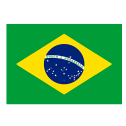 Brazil (first place, Group G)
Brazil (first place, Group G)
Title odds, per FiveThirtyEight: 26%
Round of 16 opponent: South Korea (Monday, 2 p.m. ET)
Julien Laurens doesn't hold back as he rips into Didier Deschamps and the French players after their 1-0 loss to Tunisia in Qatar.
Why they will win it all: Party in the front (eventually), veterans in the back. Hiring a conservative coach (Tite) to lead a squad full of flamboyant attackers can easily backfire without the right balance and man management. You play away from your strengths, the attackers get frustrated, and things fall apart.
In his six-plus years in charge of the Selecao, Tite has mostly found said balance. Brazil have allowed just 27 goals and lost only five times in his 78 matches in charge. Four of the five losses were by one-nil margins -- which hints at how things look when they go wrong, but they don't go wrong often.
The veteran base of defenders Thiago Silva (38) and Marquinhos (28) and midfielder Casemiro (30) was an unsolvable puzzle for both Serbia and Switzerland, who combined to attempt just 11 shots worth 0.48 xG, putting none on target. And as both opponents grew tired and frustrated, the Brazilian attack eventually kicked in, and they booked their last-16 spot with two wins. What has worked for six years under Tite has worked in Qatar.
Why they won't: The attack runs through Neymar (who's hurt once again). Brazil overwhelmed Serbia with 19 shots and two goals in the second half. The ball was constantly at Neymar's feet -- he had the most touches of any non-defender -- and the eventual goals, both from Richarlison, felt inevitable.
Neymar left the match after 80 minutes, however, after suffering damaged ankle ligaments. Without their focal point, Brazil resorted to aimless crossing against Switzerland (25 of them, with only a 16% completion rate) and attempted only 13 shots. They eventually took control with a scruffy late goal from Casemiro, but the attack wasn't nearly as smooth without its center of gravity, whose return to the competition is unknown.
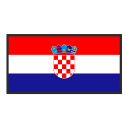 Croatia (second place, Group F)
Croatia (second place, Group F)
Title odds, per FiveThirtyEight: 3%
Round of 16 opponent: Japan (Monday, 10 a.m. ET)
Why they will win it all: You can't stop them from doing what they want with the ball. I'm not going to make the case that Croatia are the most proactive team in this tournament. Far from it. They averaged just 1.3 goals (12th in the World Cup) on 9.7 shots per match (21st). When they fell behind against Canada and had to attack, they charged ahead for four goals; against Morocco and Belgium, they appeared content with pragmatism. But whatever they choose to do with the ball at any given time, aggressive or conservative, they are able to do it.
Croatia are averaging 87 progressive carries per match (third) and 27.3 possessions per match with at least nine passes (third). The left-side pairing of Borna Sosa and Ivan Perisic is primarily responsible for the former -- they have 68 progressive carries between them, and left-center-back Josko Gvardiol has another 39; for the latter they of course lean on the tried-and-true midfield trio of captain Luka Modric, Marcelo Brozovic and Mateo Kovacic.
Mark Ogden gives his analysis on the 2-0 win over Uruguay in Group H that takes Portugal into the Round of 16 at the World Cup.
Why they won't: Shots matter. For all of their on-ball prowess, none of it translated into goals in either of their scoreless draws against Morocco and Belgium. They combined to attempt 16 shots worth 1.2 xG in those matches -- poor quantity combined with poor quality -- and while they were able to limit Morocco to even fewer opportunities (eight shots worth just 0.4 xG), a desperate Belgium overwhelmed them with 16 shots in attack and, frankly, should have scored, won and eliminated Croatia from the competition.
Belgium's Dries Mertens and Romelu Lukaku alone created five shots worth at least 0.3 xG each -- very big chances -- while Croatia attempted none worth more than 0.13. No matter how good you are on the ball, if your opponents are creating both better and more frequent opportunities, you aren't going to win four knockout matches.
 England (first place, Group B)
England (first place, Group B)
Title odds, per FiveThirtyEight: 9%
Round of 16 opponent: Senegal (Sunday, 2 p.m. ET)
Why they will win it all: Set pieces. They were England's secret weapon in the 2018 World Cup, where the team scored six set-piece goals (four from corners) in seven matches, two of which put them ahead in both the quarterfinals and semifinals.
They've only got two such goals so far -- one from Bukayo Saka on a corner against Iran and one from a scorching Marcus Rashford free kick that opened the scoring against Wales -- but it remains a clear advantage as they've created 10 shots from set pieces, and opponents have yet to attempt one. (The US created seven corner-kick opportunities but got no quality looks from them.)
When you've got as much talent as anyone in the competition, and you've got a cheat code for creating solid scoring chances, you're in great shape.
Why they won't: The subs are doing too well? It's an odd critique, admittedly, but the England attack is in a strange place at the moment. The Three Lions scored nine goals in the group stage with Gareth Southgate's first-choice attacking trio of Harry Kane, Saka and Raheem Sterling performing relatively well, scoring three goals and creating a combined 2.18 expected goals (xG) and expected assists (xA) in a total of 512 minutes. That's a rate of 0.38 combined xG+xA per 90 minutes. The trio of Rashford, Phil Foden and Jack Grealish, however, combined for a torrid five goals and 3.37 xG+xA in just 271 minutes, 1.12 per 90.
History suggests Southgate will stick to his guns when it comes to lineup selections, and having prolific bench players who are commanding a higher workload is a great problem to have. But it can still be a problem if you aren't putting your most in-form and effective lineup on the pitch as the matches increase in importance. The last thing you want to do is leave available goals unclaimed while trying to bring the World Cup trophy home.
 France (first place, Group D)
France (first place, Group D)
Title odds, per FiveThirtyEight: 12%
Round of 16 opponent: Poland (Sunday, 10 a.m. ET)
Why they will win it all: Kylian Mbappe. France quickly secured advancement to the knockout rounds by taking care of Australia and Denmark by a combined 6-2 -- which allowed them to field an extremely rotation-heavy squad against Tunisia -- but that score line doesn't do justice to the levels of domination in those two matches. They outshot their opponents by a combined 44-14 and created 6.8 xG while allowing just 1.2; while Australia were obviously outmanned, Denmark were considered a World Cup sleeper by many and could manage just two shot attempts in the first 67 minutes.
At the heart of France's success, of course, has been Mbappe, the FIFA Young Player Award winner at the last World Cup and the current front-runner for Golden Ball winner at this one. As ESPN's Ryan O'Hanlon laid out after two matches, the best player in the world is playing some of his best-ever ball at the best possible time.
Why they won't: The wrong kind of conservatism. The modern game is one of pressing and possession, and it would make sense that most of the tournament favorites do those things well. There are currently eight teams with betting odds of +1400 or better to win the World Cup, and six of them currently rank in the top eight in passes allowed per defensive action (PPDA, a common measure of defensive intensity), all averaging under 12.0 PPDA. Brazil (12.2, 11th in the competition) is close. France (18.5, 26th) is not.
For all of their absurd talent, they were downright passive against Denmark, allowing the Danes to average 6.4 passes per possession and end 50% of their possessions in the attacking third. This opened up space for transition attacks -- something that the impossibly fast Mbappe and his teammates can thrive in at times -- but it also raised a question: How will the French fare among the best possession teams in the field if they can't (or won't) take the ball away from them?
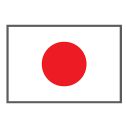 Japan (first place, Group F)
Japan (first place, Group F)
Title odds, per FiveThirtyEight: 2%
Round of 16 opponent: Croatia (Monday, 10 a.m. ET)
Why they will win it all: They. Never. Stop. Let's be honest: Very little worked as Japan might have hoped for large portions of the group stage. Germany enjoyed 74% possession against them and doubled them up in terms of both shots (26-12) and xG (3.1-1.5). They had all the ball they wanted against Costa Rica, but produced very few scoring opportunities, failed to take advantage of what they had and suffered a dismal 1-0 upset loss. And against Spain, they had almost none of the ball (possession: Spain 82%) and attempted half as many shots.
Yes, I'm writing all of this in the "why they will win it all" section. Why? Because despite all of this, they beat Germany and Spain. When Germany eased back into third gear up 1-0 late, Japan's super subs pounced: Freiburg's Ritsu Doan scored on a sudden strike in the 75th minute, then Borussia Monchengladbach's Ko Itakura set up another sub, Bochum's Takuma Asano, for an even more sudden game-winner in the 83rd. (Three Bundesliga players being directly responsible for Germany's elimination. Ouch.)
Against Spain, it was the same thing. Spain was happy to just knock the ball around after going up 1-0, but Japan went from offering no threat to all of the threat in an instant. Doan again hopped right off the bench to score, this time in the 48th minute, and just three minutes later, after Brighton's Kaoru Mitoma saved a ball off the line by millimeters, Fortuna Dusseldorf's Ao Tanaka came out of nowhere to poke it in the net. Japan will suffer for 85 minutes and beat you in five.
Why they won't: Read the last three paragraphs again. You don't win the World Cup by giving superior opponents that many chances. It will eventually backfire, but until then, it's going to be hell to actually eliminate them from this competition.
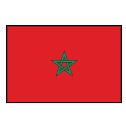 Morocco (first place, Group F)
Morocco (first place, Group F)
Title odds, per FiveThirtyEight: 1%
Round of 16 opponent: Spain (Tuesday, 10 a.m. ET)
Why they will win it all: individual moments of brilliance. Chelsea's Hakim Ziyech has a goal and an assist among four chances created. PSG's Achraf Hakimi has created three chances with a 96% completion rate in the attacking third. Sevilla's Youssef En-Nesyri had a perfect counterattacking goal against Canada. Bayern's Noussair Mazraoui has been an absolute pest along the left flank, while West Ham's Nayef Aguerd and Fiorentina's Sofyan Amrabat have been ball recovery wizards and make nothing but safe passes.
Morocco has a lot of major-club talent, and new manager Walid Regragui harnessed it beautifully in group play. After a dull stalemate against Croatia, they used a couple of brilliant moments to beat Belgium and an early spurt to beat Canada and advance. This is an enigmatic group that has come through in both attack and defense.
Why they won't: discipline and set pieces. No one can deny that Morocco made the most of its opportunities, scoring on a funky free kick and a perfect route-one attack against Belgium and pouncing on a passing error against Canada, before scoring on another perfect sudden counter. There were equal parts skill and panache with each goal. But they also committed a lot of fouls -- 44 in all, sixth-most in the competition -- and often in dangerous places.
This didn't result in a cards problem -- they've only been dealt two yellow cards to date, none for any of their best attackers -- but it contributed to a set pieces problem. Kevin De Bruyne nearly scored on a first-half free kick in the Belgium match, and in all, when combined with 20 corner kicks, opponents attempted eight shots from set pieces. Morocco only managed three shots and created three corners. It's easier to win without possession (and Morocco's 37% possession rate was fifth-lowest) if you're the one creating set-piece danger.
 Netherlands (first place, Group A)
Netherlands (first place, Group A)
Title odds, per FiveThirtyEight: 6%
Round of 16 opponent: USA (Saturday, 10 a.m. ET)
Why they will win it all: They turn you over. Louis van Gaal's Dutch team is active. They lead the competition with the fewest passes allowed per defensive action (9.3) and despite leading for the majority of each group stage match, they started 29 possessions in the attacking third to opponents' 17. Midfielder Frenkie de Jong leads the team in ball recoveries, but the pressure is a full-team effort: Netherlands have commanded 57% of overall touches in the attacking third with a 57% possession rate.
They've got the raw defensive talent -- Virgil van Dijk, Nathan Ake, Jurrien Timber, Matthijs de Ligt -- to safeguard them while pressing heavily (goalkeeper Andries Noppert has been excellent, too), and they put the ball in more dangerous areas than opponents.
Why they won't: No creativity. For such an active team, the Dutch sure are stolid in attack. Despite all that possession in dangerous areas, they managed just 10 shots worth 0.7 xG against Senegal and two worth 0.1 against Ecuador; they were fortunate to win the former match and draw the latter, and if Cody Gakpo hadn't scored with his only shot in each match, they wouldn't have.
Gakpo, the increasingly sought-after PSV Eindhoven attacker, has scored three goals from four shots worth just 0.3 xG. The rest of his teammates have scored just two goals from 21 shots worth 2.5. They neither create high-quality or high-volume shots -- they averaged just 0.3 big chances created ("a situation where a player should reasonably be expected to score," as defined by Stats Perform) in the group stage; only two teams averaged fewer, and that will eventually become a clear issue if it does not change.
This makes their matchup with the United States an interesting one: the teams have a lot of the same strengths and same weaknesses.
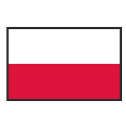 Poland (second place, Group C)
Poland (second place, Group C)
Title odds, per FiveThirtyEight: <1%
Round of 16 opponent: France
Why they will win it all: They've got the hottest goalkeeper in the competition. Stat Perform's Goals Prevented measure compares the goals you've allowed to the post-shot xG value of the shots opponents put on your goal. Based solely on that xG figure, Poland should have allowed about six goals in the group stage; they allowed only two because Wojciech Szczesny stood on his damn head. He stopped penalties from both Messi and Saudi Arabia's Salem al-Dawsari, he stopped close-range efforts from al-Dawsari and Argentina's Rodrigo De Paul, and he saved 18 total shots on goal in three matches.
Allow even three goals instead of two -- which would have still been overachieving -- and Poland would be on a plane home right now.
Why they won't: They can't create opportunities for one of the best strikers in the world. In 19 matches with Barcelona this season, Robert Lewandowski has averaged 4.5 shots, 0.8 xG and 1.1 goals per 90 minutes. In three World Cup matches, he has averaged 2.3 shots, 0.6 xG and 0.3 goals. He scored his first ever World Cup goal against Saudi Arabia, but missed on a late chip in the same match and had a penalty saved against Mexico. Those were his only three shots on goal in three matches. He barely touched the ball against Argentina and attempted zero shots.
Lewandowski isn't Poland's only high-level player, of course -- 14 other members of the roster play for clubs in Europe's Big Five leagues -- but when your headliner is neither getting the service he needs nor taking advantage of the opportunities he gets, your ceiling isn't going to be very high. He could unleash a hat trick at any time, but if he couldn't do it against Saudi Arabia, it's fair to assume the odds aren't high that he will do it against France.
 Portugal (first place, Group H)
Portugal (first place, Group H)
Title odds, per FiveThirtyEight: 8%
Round of 16 opponent: Switzerland (Tuesday, 2 p.m. ET)
Why they will win it all: Where passing is harder, Portugal is better. One would assume that a squad featuring Bernardo Silva, Bruno Fernandes, Raphael Guerreiro and Joao Cancelo would be one of the more creative in the competition, and that has played out thus far. They have been fortunate in the finishing department -- they created shots worth 3.3 xG in their first two matches but scored five goals from them, and they scored one of their goals when Cristiano Ronaldo whiffed on a Fernandes cross (which fooled the Uruguayan goalkeeper) -- but they still created plenty of chances, and they made sure that they were the only team regularly completing passes into dangerous areas.
Pass completion rate into the attacking third:
Portugal 81%, Ghana 57% (Portugal won 3-2)
Portugal 79%, Uruguay 64% (Portugal won 2-0)
Fernandes and Silva have both completed 40 passes into the final third (with a ridiculous 86% completion rate), and the stalwart Portuguese defense, led by cent-backs Ruben Dias along with veterans Danilo Pereira (31) and Pepe (39), has fended off most threatening buildups. Even one of Ghana's goals came on a cross that a defender deflected.
Why they won't: You have to hold onto leads to win it all. When their first two matches were tied, Portugal dominated, controlling 69% of possession, attempting 19 shots worth 2.0 xG, allowing just six shots worth 0.7 and scoring three times. Dominant.
Once they were ahead, however, they sacrificed a dangerous amount of control. They allowed two goals to Ghana (one to tie the match at 1-1, one to make it 3-2), and in those two matches their possession rate fell to 45% with opponents attempting 14 shots to their seven. While Brazil's Tite has pulled off a solid balance of conservatism and attacking flair, one could argue that Portugal's Fernando Santos hasn't quite found that same balance.
 Senegal (second place, Group A)
Senegal (second place, Group A)
Title odds, per FiveThirtyEight: 2%
Round of 16 opponent: England (Sunday, 2 p.m.)
Why they will win it all: Transition. Tuesday's Senegal vs. Ecuador match pitted two of the best transition teams in the competition. In their first two matches, Ecuador had scored two of their three goals from what I call "transition possessions" -- possessions beginning outside of the attacking third and lasting 20 or fewer seconds -- and had not allowed opponents a single shot in those possessions. But against Senegal, the shoe was on the other foot. Senegal created two early high-quality transition opportunities and allowed Ecuador none.
That's been the story of the competition for Senegal. Their xG differential in transition possessions is +0.8, fourth best among teams in the knockout rounds, and while they were decent in transition attack (one goal, 0.96 xG), their primary strength was in completely snuffing out opponents' opportunities. The defensive spine of keeper Edouard Mendy, center-backs Kalidou Koulibaly and Abdou Diallo and defensive midfielder Nampalys Mendy is as stout as just about any in the World Cup.
Why they won't: You've got to finish. When the news came down that star Sadio Mane was going to miss the World Cup because of injury, it was fair to wonder how the heck Senegal was going to put the ball in the net.
It's still fair to wonder, too. While they handled Qatar with ease, and they attempted plenty of shots against higher-level opponents Netherlands and Ecuador, the finishing indeed lacked. They attempted 28 non-penalty shots worth 2.14 xG in those two matches but scored just once from them, via a deflection to Koulibaly on a free kick. (They also scored on an Ismaila Sarr penalty against Ecuador.) They have been decent at generating set-piece opportunities, but in open play they are creating almost no threat against solid opposition.
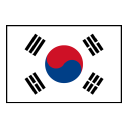 South Korea (second place, Group H)
South Korea (second place, Group H)
Title odds, per FiveThirtyEight: <1%
Round of 16 opponent: Brazil (Monday, 2 p.m. ET)
Why they will win it all: When they have to charge, they charge. In a stolid opener against Uruguay, it was like both teams were content with attacking as little as possible; South Korea attempted only seven shots and put none on target. They put zero on target again in the first half against Ghana, falling behind 2-0.
Once desperation kicked in, however, Paulo Bento's squad shined. They got two goals from Cho Gue-Sung in about three minutes and unloaded 16 shots, seven on target, in a desperate chase (and eventual 3-2 loss). And the chase continued Friday; needing a win and help to advance, they fell behind Portugal in the opening moments and once again grew into the game slowly, attempting only five shots in the first 55 minutes. But one of them was a Kim Young-Gwon goal on a corner kick. That bought them time. And over the final 25 minutes they kicked into another gear, attempting six increasingly dangerous shots and finally going ahead on Son Heung-Min's charge and perfectly timed assist to Hwang Hee-Chan in the 91st minute.
After barely registering an attack in the competition's first three halves, they outscored opponents 4-2 in the final three. The more important the moment, the better they played.
Why they won't: 1v1s. South Korea neither attempts nor wins them. The art of the duel isn't the most make-or-break in soccer, but it can help -- of the top nine teams in ground duel win percentage, six advanced to the knockout rounds, while only three of the bottom nine did.
South Korea? They attempted the fourth-fewest and, at 42%, won the second-lowest percentage of them. Take out left back Kim Jin-Su and star and frequent duelist Son Heung-Min, and that falls to 38%. That they charged back so well in the group stage without winning many confrontations was impressive, but it will be difficult to continue doing so if they either can't or won't force the issue.
 Spain (second place, Group E)
Spain (second place, Group E)
Title odds, per FiveThirtyEight: 14%
Round of 16 opponent: Morocco (Monday, 10 a.m. ET)
Why they will win it all: Identity. While every powerful team attempts to dominate possession, nobody does it like Spain. Luis Enrique's squad advance to the knockouts with the highest possession rate (77%), the most combined pass attempts (912.3 per match), the most touches (1073.7 per match) and the highest pass completion rate, both overall (91%) and in the attacking third (86%). Only 27 players from the World Cup's 32 teams attempted at least 200 passes in the group stage; Spain had five of them, including Aymeric Laporte... who played in only two matches! You don't get the ball unless they let you take it.
There was some creativity in these passes, too -- they ranked ninth in chances created (9.3 per match, led by Dani Olmo's 1.7), third in both assists (1.7, Jordi Alba had two) and xA (1.2) and first in pass attempts into the attacking third (79.3).
Because of a seven-goal outburst against Costa Rica, they actually tied with England for the most goals scored in the group stage, too. But as we'll see, that was more the disguising of a weakness than proof of a strength.
Why they won't: Can they score when they need to? In last summer's Euros, Spain dealt with major finishing issues, creating solid chances, but failing to convert. It was the eventual reason for their semifinal defeat. In Qatar, however, they've begun to struggle in a different way.
After destroying Costa Rica in the opening match -- 17 shots, 3.5 xG and seven goals -- the tap went dry against Germany. They had 64% possession, but created almost no danger, attempting seven shots worth 0.6 xG and ending up lucky to snare a draw. And against Japan, after scoring on a lovely Alvaro Morata header in the 11th minute, they attempted only two shots over the next 62 minutes. When a sudden Japan surge gave them the lead, they created almost nothing of quality down the stretch. After a torrid opener, they have struggled with both shot quality and quantity.
 Switzerland (second place, Group G)
Switzerland (second place, Group G)
Title odds, per FiveThirtyEight: 2%
Round of 16 opponent: Portugal (Tuesday, 2 p.m. ET)
Why they will win it all: What do they do wrong? Against Cameroon in their first match, the Swiss timed their pressing well, created better opportunities for most of the game (final xG: 1.4 to 0.7), scored on a beautifully engineered sequence early in the second half and took three points.
In their second match, they frustrated Brazil's attack, kept the ball out of dangerous areas (Brazil's xG per shot: a lowly 0.08) and looked as if they would steal a draw until a firecracker from Casemiro in the 83rd minute.
In a decider against Serbia, missing a couple of starters to illness, they decided the best defense is a good offense, playing front-footed ball and scoring three times in the first 48 minutes. Breel Embolo and Xherdan Shaqiri each contributed their second goals of the tournament, and Remo Freuler put them ahead for good. Up 3-2, they flipped things around and barely allowed Serbia any looks at goal. Serbia attempted only five shots after the 48-minute mark, none worth more than 0.08 xG (and only two on target), and the Swiss advanced.
Whatever a match requires, Switzerland delivers a pretty good version of it. You could make a solid case that they have one of the highest floors in the competition.
Why they won't: What do they do particularly well? One would assume that, over the course of four knockout matches, you will also have to prove a high ceiling. They finished the group stage 11th in goals scored, 12th in xG created, 12th in goals allowed, 13th in xG allowed, 14th in pass completion rate, 13th in progressive carries, 18th in progressive passes completed, 21st in progressive pass completions allowed, 26th in progressive carries allowed ... you get the point.
They're bad at nothing, but they're also great at nothing.
 United States (second place, Group B)
United States (second place, Group B)
Title odds, per FiveThirtyEight: 1%
Round of 16 opponent: Netherlands
Why they will win it all: The midfield is relentless. Wales couldn't move the ball through the midfield, so they started booting long balls to a tall forward. Jude Bellingham had 10 touches in the first 13 minutes but only 40 thereafter as England found passing lanes through the midfield hard to come by. (Mason Mount had only 45 total touches in 90 minutes.) Iran created only 60 total touches in the attacking third until Weston McKennie went off the field in the 65th minute. (They created 64 in the final 25 minutes.)
- Stream on ESPN+: LaLiga, Bundesliga, more (U.S.)
Relentless running and pressing from the trio of McKennie (24), Yunus Musah (20) and captain Tyler Adams (23) and fullbacks Sergino Dest (22) and Antonee Robinson (25) have made advancing the ball into dangerous areas almost impossible and allowed the US to control large portions of games -- granted, without generating a large number of quality scoring opportunities -- against not only Wales and Iran but also England. And if they were able to control Bellingham and Mount, they can control most of the midfields in this competition.
Why they won't: Matches are 90 minutes long. One problem with relentless running and pressing: It wears you out, especially when some of your most important players came into the World Cup with recent injuries and fitness concerns. McKennie is averaging only 69.3 minutes per match, Dest 78.0. And as these players begin to tire, the Americans' effectiveness vanishes.
xG, first 60 min: USA 2.19, opponents 0.91 (actual score: US 2-0)
xG, last 30 min: opponents 2.23, USA 0.35 (actual score: opponent 1-0)
Fatigue has indeed limited certain key players, and manager Gregg Berhalter's substitution decisions (both timing and personnel) have been, to put it diplomatically, shaky. When things move into game management mode, the US quickly fray. The fatigue isn't going to suddenly get better as the tournament progresses.
